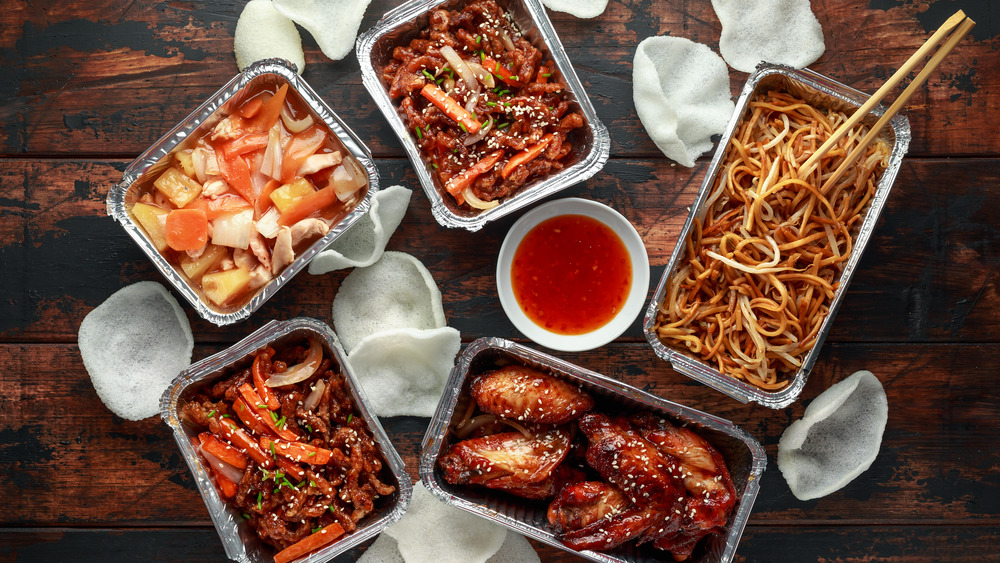Unhealthy Chinese Restaurant Foods You Should Always Avoid

If you're like most Americans, Chinese food is one of your favorite cuisines. But did you know that some of your favorite Chinese dishes are actually quite unhealthy? In fact, there are a few Chinese restaurant foods that you should always avoid if you're trying to eat healthy. One of the unhealthiest Chinese restaurant foods is General Tso's Chicken. This dish is usually fried and coated in a sugary sauce. While it may taste delicious, it's not exactly good for you. In fact, one order of General Tso's Chicken can contain over 1,000 calories and 40 grams of fat. Another unhealthy Chinese food is egg rolls. Egg rolls are often fried and can be high in calories and fat. They may also contain unhealthy additives and preservatives. If you're looking for a healthy alternative to Chinese food, there are plenty of healthier options available. You can find healthy Chinese food recipes online or in cookbooks. You can also ask your favorite Chinese restaurant to make a healthier version of your favorite dish.
General Tso's Chicken is packed with sugar
If you're in the mood for Chinese takeout, you might be tempted to order General Tso's Chicken. But beware – this popular dish is packed with sugar. A single serving can contain up to four grams of sugar, which is more than the recommended daily amount for adults. So why is General Tso's Chicken so sweet? The sauce is made with a combination of sugar, soy sauce, rice wine vinegar, and other sweeteners. And the chicken is often coated in a sweet batter before it's fried. If you're watching your sugar intake, it's best to avoid General Tso's Chicken. But if you do indulge, be sure to pair it with a side of steamed vegetables or rice to balance out the sweetness.
Recommended
NEXT UP
What The Soup Diet Really Does To Your Body

Looking to lose weight quickly? The soup diet may be for you! This fad diet has been around for years, and many people swear by its weight loss effects. But what does the soup diet really do to your body? Most versions of the soup diet involve eating mostly or only soup for a period of time, usually 7-10 days. The soups are usually made with low-calorie ingredients like vegetables, and sometimes also include lean protein sources like chicken or fish. The idea behind the soup diet is that you can lose weight by eating fewer calories than you burn. And since soup is generally low in calories, it can help you create a calorie deficit and lose weight. There are a few different ways that the soup diet can help you lose weight. First, soup can be very filling, so you may find yourself eating less overall. Second, soup often contains water and fiber, both of which can help you feel full and satisfied after eating. And finally, the soup diet can help you cut down on unhealthy calorie-dense foods, like processed snacks and desserts. By replacing these foods with soup, you’ll naturally eat fewer calories and lose weight. So, if you’re looking to lose weight quickly, the soup diet may be a good option for you. Just be sure to make your soups with healthy ingredients, and to supplement with other healthy foods as well.
Why soup diets may be harmful to your health
Soup diets have been around for years, and they continue to be popular because they are seemingly easy and effective. However, there are some serious risks associated with soup diets that people should be aware of before they try one. Here are three reasons why soup diets may be harmful to your health: 1. They are very restrictive. Most soup diets require you to eat nothing but soup for every meal, which can quickly become tiresome. Not to mention, it’s nearly impossible to get all the nutrients your body needs from soup alone. This can lead to feelings of fatigue, irritability, and even dizziness. 2. They can cause dehydration. Because soup is mostly water, it can actually cause you to become dehydrated if you’re not careful. This is especially true if you’re eating a lot of soup that is high in sodium. Be sure to drink plenty of water throughout the day to avoid dehydration. 3. They can lead to weight gain. Even though soup diets are often advertised as a way to lose weight, they can actually cause you to gain weight in the long run. This is because most people end up eating more than they would if they weren’t on a soup diet. Plus, the weight you do lose is often just water weight, not actual fat.


